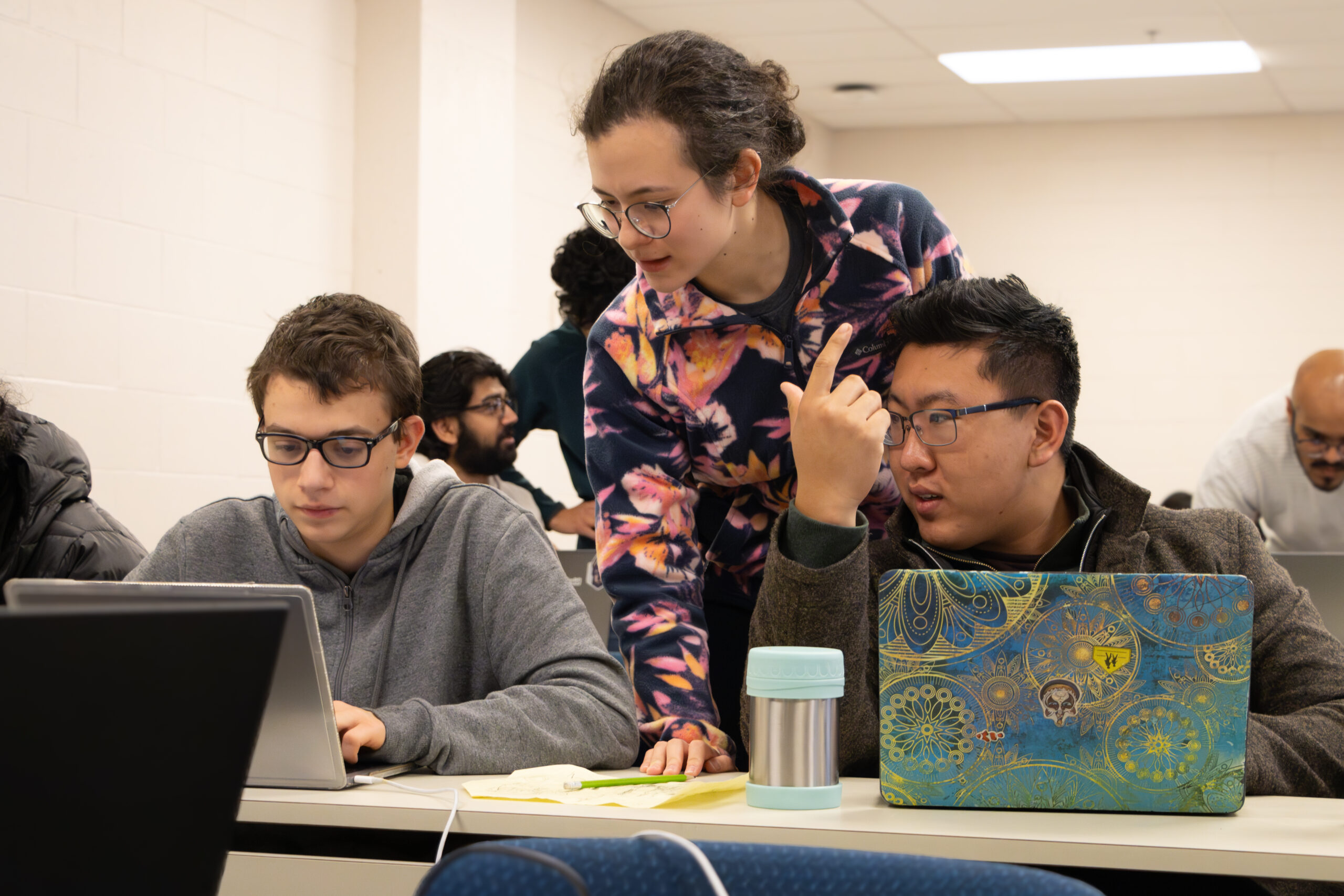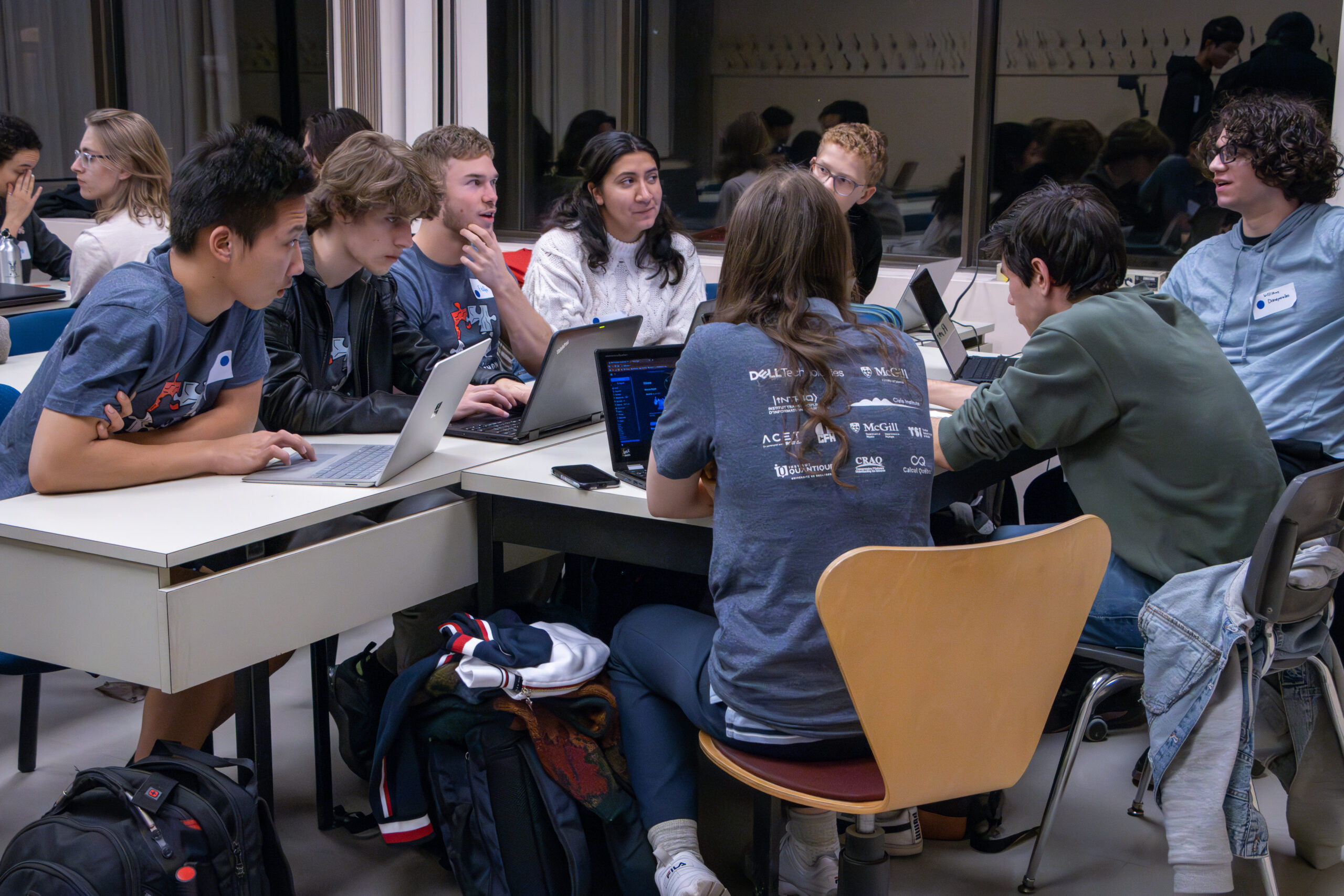
On November 3, the McGill Physics Hackathon kicked off its eighth annual event. Over the course of 24 hours, spread over three days, participants formed teams and took over the Rutherford Physics Building in a friendly computer programming competition. The goal? Use any programming language to demonstrate a concept or phenomenon in the physical sciences. At the end of the weekend, projects were judged based on their technical execution, ability to clearly communicate what was accomplished, and aesthetics.
The Hackathon began in a packed Rutherford lecture hall on Friday evening with speeches by organizers and sponsors. The first fully in-person Hackathon since 2019, this year’s edition saw some 150 participants begin the event, and among them, some 120 stayed through to the end of the weekend to submit one of the 34 final projects.
Diverse demographics
Around 49 per cent of the participants were undergrads, 40 per cent were CEGEP students, 5 per cent were high school students, 5 per cent were graduate students, and 1 per cent were college or continuing education students. These diverse age demographics, as well as the open-ended nature of the prompt, make the McGill Physics Hackathon stand out among similar hackathons, which typically offer a more specific prompt or problem to solve.
No technical background is required to participate in the Hackathon, and the event emphasizes creativity, curiosity, and collaboration above all else. Physics PhD student and Hackathon organizer David Gallacher, who’s been involved with the Hackathon since 2021, said he hopes this emphasis gives participants the chance to experience the kind of environments he works in as a researcher.
“We try to emulate the best parts of research, where you get to work in collaborative environments, challenge yourself, and solve hard problems,” Gallacher said.
Honing communication skills

Following the opening ceremony, the hackers formed teams of two to five people and got started on their projects. Teams had the entire day on Saturday to work on their projects and chat with mentors and other groups. A workshop on astronomy datasets and machine learning, as well as a mini-hack challenge hosted by Hackathon sponsor Dell, were offered in the morning. At lunch, participants even had the chance to network with the Hackathon’s corporate and academic sponsors.
Hacking continued into Sunday afternoon until judging time, when groups gave five-minute presentations to two panels of judges. The project code was not seen by the judges, a choice designed to help teams focus on learning effective science communication skills.
“Science communication is really key to getting anyone to care about what you’re doing,” Gallacher said. “We try to encourage that as a fundamental component of the Hackathon.”
Impressive final projects
First Place and the People’s Choice awards went to “SingularIO,” an interactive visualization of celestial bodies interacting with each other with gravitational forces. Second place was awarded to “Gateway to Mars – Humanity’s Magnum Opus,” which demonstrates the Hohmann transfer orbit. Third place went to “A Special Kind of Farming,” a game inspired by the Twin Paradox and the novel The Three-Body Problem by Cixin Liu.
Awards were also given out by sponsors for the Best Machine Learning Project, Best Astro Project, and Best Quantum Project. In total, winners received $3,900 in cash as well as sponsor-provided prizes.
Reflecting on this year’s winners, Gallacher was impressed by the success of the CEGEP participants, who were well-represented among the prize-winning teams.
“I was blown away by not only what they already knew, but also what kind of questions they were asking,” he said. “They were asking really great questions that were way outside of the physics curricula that they would have been exposed to.”
You can check out all the 2023 McGill Physics Hackathon projects here.
